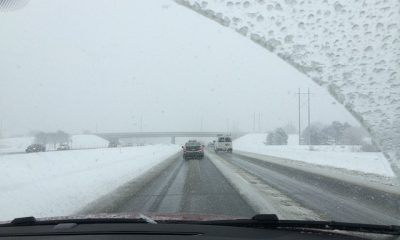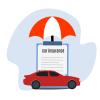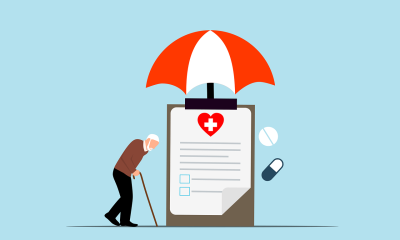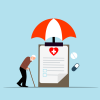Insurance
Navigating the Night: 10 Essential Driving Safety Tips and Preparing Your Car Insurance
Driving at night presents unique challenges that can significantly impact road safety. Reduced visibility, glare from headlights, and the presence of impaired or fatigued drivers are just a few of the hazards drivers face after dark. To ensure your safety and that of others on the road, it’s essential to adopt a proactive approach to nighttime driving. Additionally, preparing your car insurance to provide adequate coverage during these hours can offer you peace of mind. In this article, we’ll explore ten essential driving safety tips for navigating the night and the importance of ensuring your car insurance is up to the task.
1. Ensure Proper Vehicle Maintenance
Before hitting the road at night, conduct a thorough vehicle inspection. Check your headlights, taillights, and turn signals to ensure they are functioning correctly. Clean your windshield and headlights to improve visibility, and make sure your brakes, tires, and wipers are in good condition.
2. Adjust Your Headlights
Properly aligned headlights are crucial for clear vision at night. Adjust your headlights to the correct angle so that they illuminate the road ahead without blinding oncoming drivers.
3. Dim Your Dashboard Lights
Dim the brightness of your dashboard lights to reduce internal reflections and glare, which can hinder your ability to see the road clearly.
4. Stay Alert and Rested
Night driving demands extra focus and attention. Avoid driving if you’re feeling fatigued, as drowsiness can impair your reaction time and decision-making skills.
5. Increase Following Distance
Maintain a safe following distance from the vehicle ahead of you. In darker conditions, it can be challenging to spot obstacles in the road, so allowing more space gives you extra time to react.
7. Reduce Speed
Driving at a moderate speed during the night enhances your ability to respond to sudden changes in road conditions or unexpected hazards.
8. Watch Out for Wildlife
Many animals are more active at night, increasing the risk of collisions with wildlife. Stay vigilant and be prepared to brake if you encounter animals near the road.
9. Avoid Overusing High Beams
While high beams can improve visibility, they can also blind other drivers. Switch to low beams when approaching or following other vehicles.
10. Stay Visible
Wear reflective clothing if you need to exit your vehicle on the side of the road, and keep your headlights on to improve your visibility to other drivers.
11. Review Your Car Insurance Coverage
Nighttime driving can be riskier, and accidents are more likely to occur. Ensure your car insurance provides adequate coverage for your needs, including liability, collision, comprehensive, and uninsured/underinsured motorist coverage.
Preparing your car insurance
- Assess Your Coverage Limits:
Review your car insurance policy to ensure your liability limits are sufficient to protect your assets in case of a severe accident. Consider increasing your coverage limits if necessary.
- Consider Comprehensive Coverage:
Comprehensive coverage protects your vehicle against non-collision-related damages, such as theft, vandalism, or weather-related incidents. If you park your car in areas prone to theft or extreme weather, comprehensive coverage is essential.
- Evaluate Uninsured/Underinsured Motorist Coverage:
This coverage protects you in case of an accident involving a driver who doesn’t have insurance or doesn’t have enough insurance to cover your damages.
- Look for Discounts:
Some insurance companies offer discounts for features that enhance safety, such as anti-theft devices, advanced driver assistance systems, or completing defensive driving courses. Inquire about potential discounts to save on your premiums.
Conclusion
Navigating the night requires extra caution and preparedness to ensure safe travels. By following these ten essential driving safety tips, you can minimize risks and protect yourself and others on the road after dark. Additionally, review your car insurance coverage to ensure you have the protection you need during nighttime driving. Adequate car insurance will not only provide financial security in the event of an accident but also grant you peace of mind as you venture into the darkness.
daget
KOTAK 1
KOTAK 2
BONUS





























